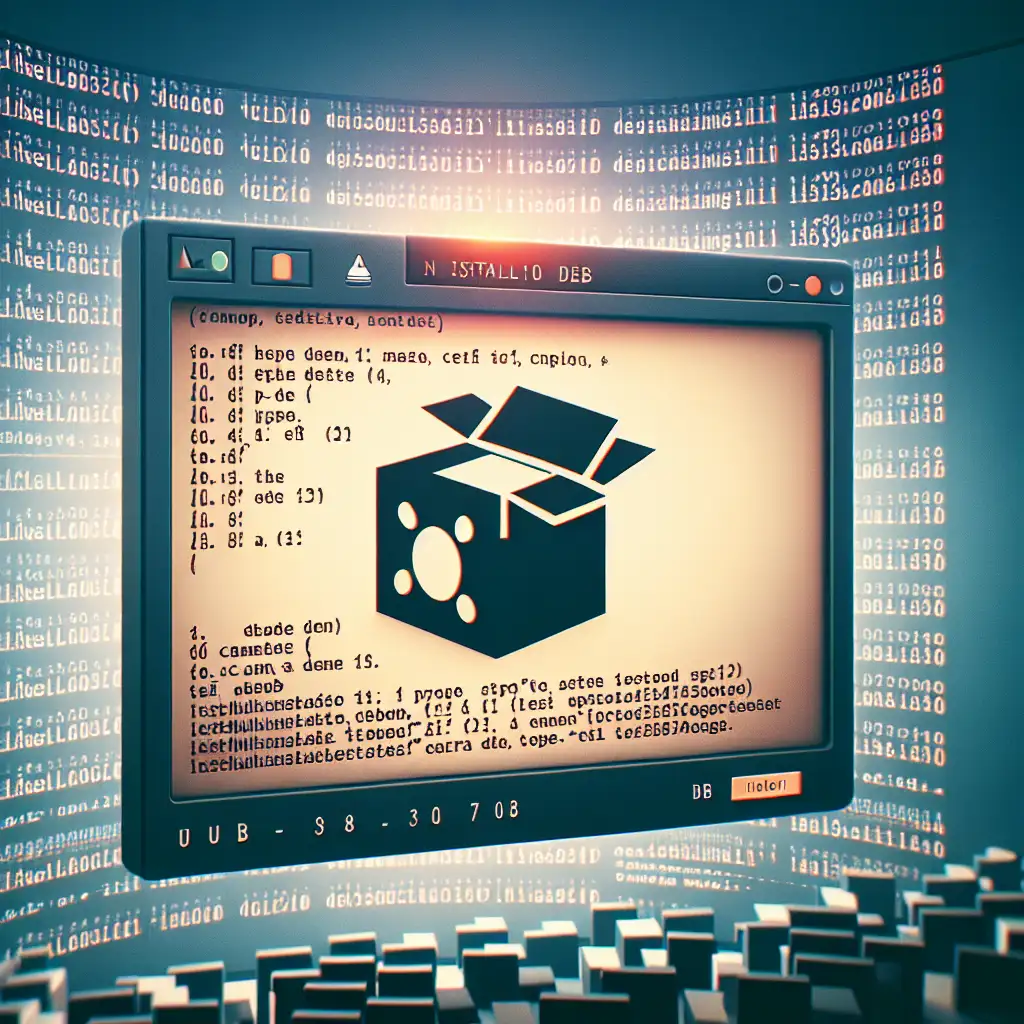Mastering Debian Package Installation on Ubuntu: A Precise Guide to Installing .deb Files
Working with Ubuntu’s official repositories covers >90% of desktop and server use cases, but closed-source, rapidly evolving, or niche software often lands outside the default channels—typically as a .deb archive. Precision handling of these files prevents system drift, minimizes dependency hell, and avoids security blunders.
What Exactly Is a .deb File?
A .deb is an ar archive containing two tarballs (control and data) plus metadata. Think of it as a pre-baked install recipe—binary payload, control files (control, postinst, etc.), and versioning meta. Ubuntu inherits this from its Debian roots. Any Ubuntu 20.04/22.04 system natively understands .deb structure.
Three Approaches to Installing .deb Files
1. dpkg — Direct but Unforgiving
When direct control is preferable, use dpkg. It performs minimal safety checks (no dependency resolution).
sudo dpkg -i custom-tool_1.8.2_amd64.deb
Typical failure mode if required libraries are unavailable:
dpkg: dependency problems prevent configuration of custom-tool:
custom-tool depends on libssl1.1 (>= 1.1.0); however:
Package libssl1.1 is not installed.
To resolve:
sudo apt-get install -f
apt-get -f (fix broken) attempts to install missing dependencies from repositories.
Gotcha: If your .deb requests oddball dependencies not in the repo, you'll be left stranded.
2. apt — Smarter Install (Recommended)
Since Ubuntu 18.04, apt natively handles local .deb, and will resolve dependencies automatically.
sudo apt install ./custom-tool_1.8.2_amd64.deb
Why the ./? It signals to apt that you’re installing a local file—not a package from a configured repo index.
If a dependency can’t be satisfied from your configured sources, installation will abort.
3. gdebi — Purpose-Built and Verbose
For scenarios demanding finer dependency information before commitment, use gdebi:
sudo apt install gdebi-core
sudo gdebi custom-tool_1.8.2_amd64.deb
Advantages:
- Provides a summary of dependencies and disk usage.
- Lower resource overhead than full GUI-based tools.
gdebi checks dependencies before touching your system—unlike dpkg. Realistically, its primary benefit is transparency rather than additional capabilities.
Quick Reference Table
| Tool | Dependency Resolution | Typical Use | Comments |
|---|---|---|---|
| dpkg | No | Low-level/manual installs | Use with caution, fix deps afterward |
| apt | Yes | General use | Preferred for simplicity |
| gdebi | Yes | Detailed info, scripts | Useful pre-flight checks |
Example: Deploying Google Chrome on Ubuntu 22.04
-
Download
wget https://dl.google.com/linux/direct/google-chrome-stable_current_amd64.deb -
Install and Resolve Dependencies
sudo apt install ./google-chrome-stable_current_amd64.debOutput will summarize fetched dependencies and proceed to install.
-
Run
google-chrome-stable &
Note: Even Google Chrome’s .deb triggers addition of Google’s APT repo (/etc/apt/sources.list.d/google-chrome.list), so regular upgrades come via apt.
Troubleshooting and Lived Realities
- Unmet dependencies after
dpkguse?
Always follow up with:
This cleans up partial states.sudo apt-get install -f - Conflicting versions?
Remove the old package first:sudo apt remove some-old-package - Review package contents before installing risky sources:
dpkg -c suspicious.deb - Broken package state is visible via:
Don’t ignore warning output—resolve before proceeding.dpkg --audit
Power User Tips
-
Convert
.rpmto.debwithalien(sometimes works, but not guaranteed due to binary or distro differences):sudo apt install alien sudo alien myapp-4.2.rpm sudo dpkg -i myapp_4.2-2_all.deb -
Always verify origin and GPG signature.
Example for signature checking (if provided):dpkg-sig --verify package.deb -
For frequent, repeatable deployments, construct a simple local APT repo (
dpkg-scanpackagesandapt-ftparchive) for consistency across multiple servers. -
Not all .deb scripts are well-written. Some packages make assumptions about system state—double-check post-install logs for unexpected errors.
Caveats and Considerations
Unlike Snap or Flatpak, .deb packages can modify system libraries and overwrite files outside /opt. Always perform a dry run in a throwaway VM if uncertain. For systems with complex dependency chains (e.g., production workloads), capture system snapshots before proceeding.
Mastering .deb package installation on Ubuntu is a core competency for maintaining flexibility without sacrificing stability. Trust automation, but understand the mechanics—diagnosing dependency failures quickly is the mark of real operational competence.
Questions remain? Sometimes the only answer is to read the package’s control and postinst scripts—or just to build from source. Not everything fits a package manager’s logic.
